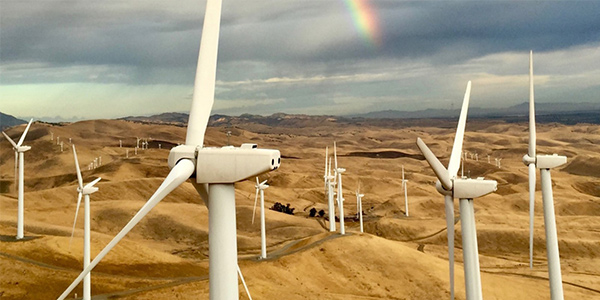FERC on Thursday said that MISO’s Tariff was silent on the issue of whether a generation project can switch from wind to solar while in the RTO’s interconnection queue (ER19-1823-003).
It also said that there was no requirement in Order 845 that requires grid operators to study projects that opt to change fuel types.
The issue stems from a Leeward Renewable Energy Development wind project currently in the definitive planning phase (DPP) of MISO’s generator interconnection queue. The developer wants to convert the project to using solar energy while also retaining its position in the queue.
Leeward said MISO was disregarding its own Tariff when it refused to perform an analysis to determine whether switching the project would constitute a material modification. Borrowing a phrase from Order 845, Leeward argued that the switch would result in “equal to or better” electrical performance.
Order 845 allows interconnection customers to make certain technological advancements to their generation projects without triggering a material-modification rule. Under the order, a customer can offer evidence that a requested technological change results in “equal to or better” performance. MISO must evaluate such claims and render a decision before projects can proceed.
Order 845 also dictates that changes between wind and solar technologies should not automatically be treated as non-material modifications because “such changes involve a change in the electrical characteristics of an interconnection request, and the transmission provider would likely need to evaluate the impacts of such changes.”
MISO argued that it should not have to evaluate “mid-DPP fuel change requests” under Order 845 and said its Tariff doesn’t permit fuel type changes to projects after they enter the DPP.
But FERC said the Tariff allows Leeward to at least make a case for a fuel change in its generation project. It said Order 845 didn’t change MISO’s pre-existing material-modification provisions in its generator interconnection procedures. While Order 845 doesn’t require the grid operator to study fuel type changes, FERC said MISO also doesn’t have language in its generator interconnection procedures to preclude itself from studying fuel change requests.
“We find that the question of whether these pre-existing Tariff provisions allow an interconnection customer to submit a fuel change request after its project enters the DPP is therefore outside the scope of MISO’s Order No. 845 compliance filing,” FERC said.
The commission added that its decision was without prejudice to MISO making any filings to “further address the permissibility of, and requirements for, fuel change requests.”





